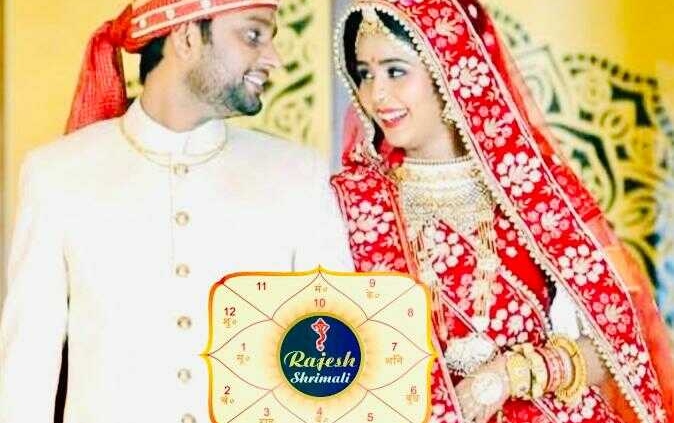Why Kundli Matching Is Important In Indian Marriages
/in Articles /by Rajesh ShrimaliThe Significance of Kundli Matching in Indian Marriages
In India, the union of two individuals in marriage is not just a coming together of two souls, but also a fusion of families, cultures, and traditions. Amidst the myriad of rituals and ceremonies that mark the sacred bond of matrimony, one practice stands out for its deep-rooted significance: Kundli Matching.
Kundli, also known as Janam Kundli or Janampatri, is essentially a birth chart prepared based on the exact date, time, and place of an individual’s birth. It encapsulates the positions of celestial bodies at the time of one’s birth, influencing various aspects of life, including personality, career, health, and most importantly, relationships.
The practice of Kundli Matching, or Kundli Milan, is an age-old tradition in Indian culture, wherein the birth charts of the prospective bride and groom are compared and analyzed to assess their compatibility for marriage. This astrological scrutiny is not merely superstition; rather, it is deeply rooted in the belief that celestial configurations can significantly impact the harmony and longevity of a marital union.

Here are several reasons why Kundli Matching continues to hold immense importance in Indian marriages:
Compatibility Assessment: Kundli Matching serves as a tool to gauge the compatibility between the prospective couple on various fronts, including mental, physical, emotional, and spiritual compatibility. By examining the positions of planets and their influences on both individuals’ lives, astrologers can provide insights into potential areas of harmony and discord within the relationship.
Predicting Marital Bliss: The alignment of planets in the birth charts can offer clues about the couple’s future together. Favorable positions of key celestial bodies signify a harmonious marital life, while adverse configurations may indicate challenges or conflicts that need to be addressed proactively.
Family Approval: In many Indian families, the tradition of Kundli Matching is not just about the compatibility of the couple but also about seeking the blessings and approval of elders. A positive Kundli matching report often strengthens familial support and facilitates smoother acceptance of the marriage within the community.
Mitigating Risks: Kundli Matching is believed to mitigate the risks of marital discord, misunderstandings, and even divorce by identifying potential areas of conflict beforehand. Armed with this knowledge, couples can take preventive measures, seek guidance, or undertake remedial measures suggested by astrologers to avert or minimize adverse outcomes.
Cultural Continuity: For many Indians, Kundli Matching is not merely a matter of astrological compatibility but also a means of preserving cultural traditions and values. It is deeply ingrained in the fabric of Indian society, reflecting the reverence for ancient wisdom and the belief in cosmic influences on human life.
Psychological Reassurance: In a society where arranged marriages are still prevalent, Kundli Matching provides psychological reassurance to both the couple and their families. It instills a sense of confidence that the union is backed by cosmic alignment and celestial blessings, fostering trust and commitment between the partners.
While Kundli Matching continues to be a revered tradition in Indian marriages, it is essential to approach it with a balanced perspective. While astrology can offer valuable insights and guidance, it should not overshadow the importance of mutual understanding, respect, communication, and shared values in a relationship.
In conclusion,
Kundli Matching is not merely a ritualistic practice but a profound expression of faith, tradition, and cultural heritage. It embodies the timeless belief in the interconnectedness of the cosmos and human destiny, guiding couples on their journey towards marital bliss and harmony in the sacred institution of marriage.



